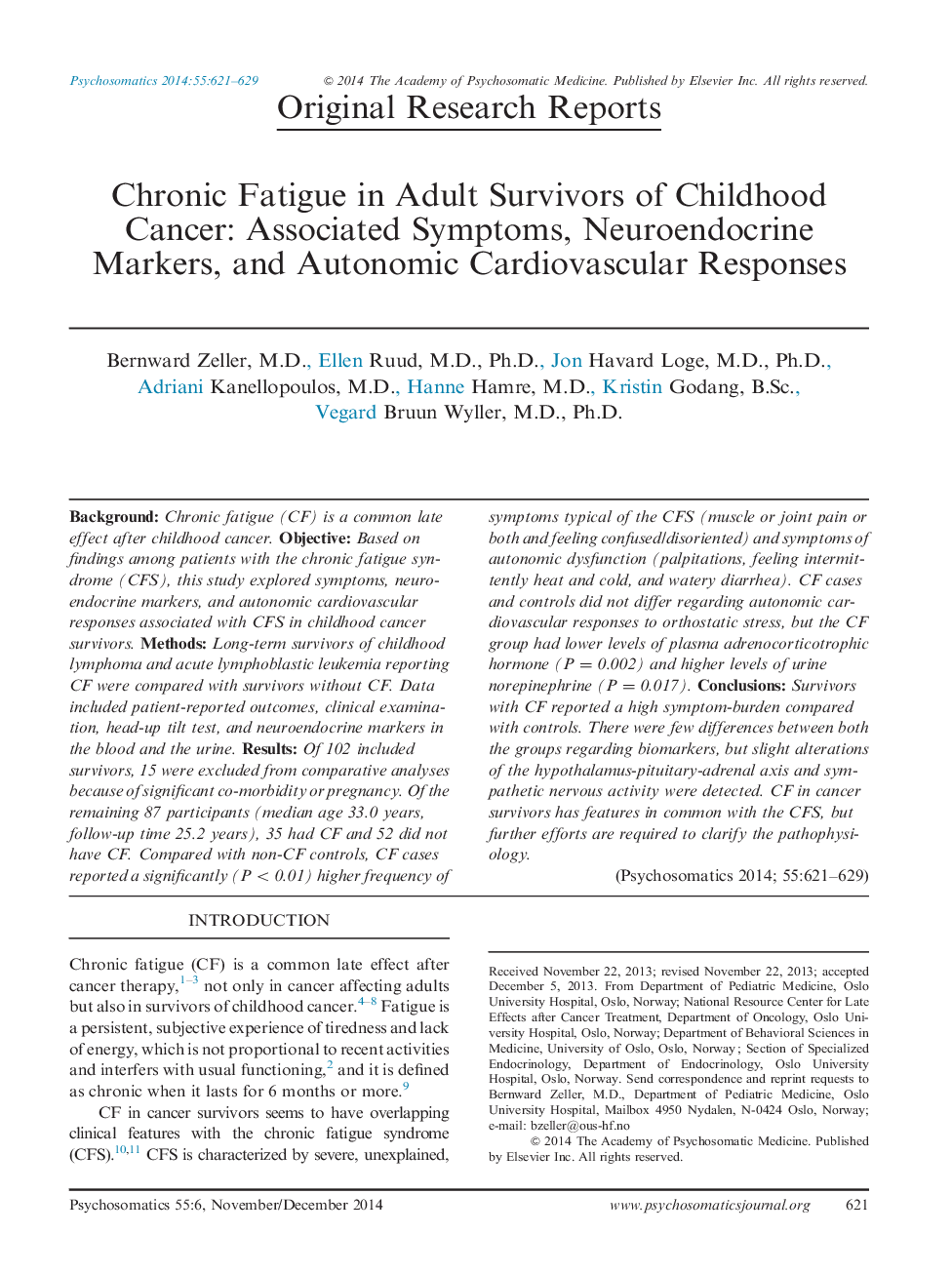| Article ID | Journal | Published Year | Pages | File Type |
|---|---|---|---|---|
| 337476 | Psychosomatics | 2014 | 9 Pages |
BackgroundChronic fatigue (CF) is a common late effect after childhood cancer.ObjectiveBased on findings among patients with the chronic fatigue syndrome (CFS), this study explored symptoms, neuroendocrine markers, and autonomic cardiovascular responses associated with CFS in childhood cancer survivors.MethodsLong-term survivors of childhood lymphoma and acute lymphoblastic leukemia reporting CF were compared with survivors without CF. Data included patient-reported outcomes, clinical examination, head-up tilt test, and neuroendocrine markers in the blood and the urine.ResultsOf 102 included survivors, 15 were excluded from comparative analyses because of significant co-morbidity or pregnancy. Of the remaining 87 participants (median age 33.0 years, follow-up time 25.2 years), 35 had CF and 52 did not have CF. Compared with non-CF controls, CF cases reported a significantly (P < 0.01) higher frequency of symptoms typical of the CFS (muscle or joint pain or both and feeling confused/disoriented) and symptoms of autonomic dysfunction (palpitations, feeling intermittently heat and cold, and watery diarrhea). CF cases and controls did not differ regarding autonomic cardiovascular responses to orthostatic stress, but the CF group had lower levels of plasma adrenocorticotrophic hormone (P = 0.002) and higher levels of urine norepinephrine (P = 0.017).ConclusionsSurvivors with CF reported a high symptom-burden compared with controls. There were few differences between both the groups regarding biomarkers, but slight alterations of the hypothalamus-pituitary-adrenal axis and sympathetic nervous activity were detected. CF in cancer survivors has features in common with the CFS, but further efforts are required to clarify the pathophysiology.
